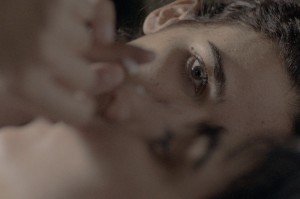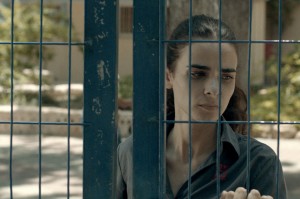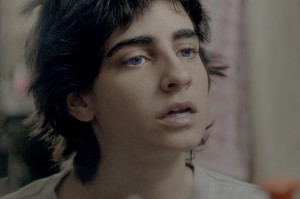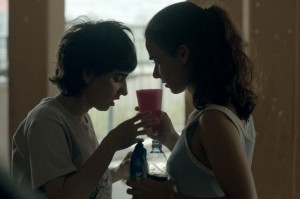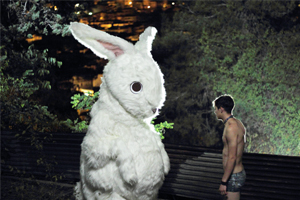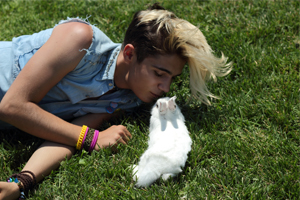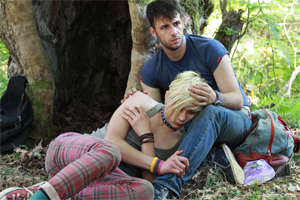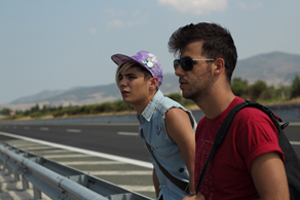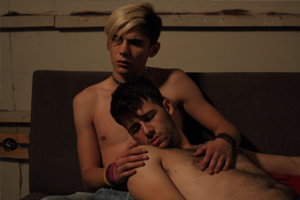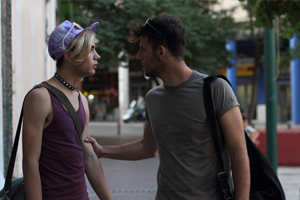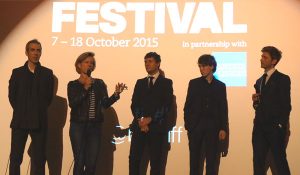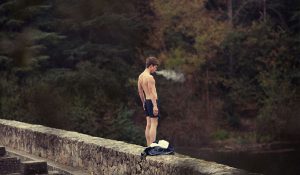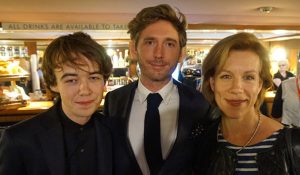How did you come across the idea for this film?
The idea for the film and the characters came from my wife, screenwriter and actress Liron Ben Shlush. Back in 2009 — she was still my girlfriend then – she told me she wanted to write a script based on her own experiences growing up with a mentally disabled sister. Talking about it for a while, we understood that this film will not be about looking after; it will be about a woman neglecting her own life for the sake of another person, and the dangers this neglect enfolds.
How was it working as a couple on the film?
Our combination, as a couple and as a screenwriter\actress and her director, defined the essence of this film. During the writing we got married and had our first child together, realizing that the film is not only about a situation of co-dependency, but also about parent-hood, about the boundaries we are forced to deal with when taking care of another person. There was a lot of anxiety before filming started. Liron had to perform nudity and love scenes with another man, and she had to deal with Dana Ivgy re-enacting her own real life sister. Eventually, these were the easiest parts of filming. The nudity and sex were technical, and the resemblance of Dana to Liron’s real sister allowed her to relate to her and made her feel comfortable.
The challenge in working with Liron on the character of Chelli was the fact that she wrote it. We had to find a way making every situation in the film new to Liron, making her forget everything she wrote so she can experience the scenes as if they are the present reality, and not something meticulously tailored in writing. The fact that the lead actress of the film was always the only person on set knowing better then everyone the meaning of the scenes and actions was both helpful and dangerous, but the strength of the emotional connection to the story, and the semi-autobiographical elements of it, allowed her to create an amazingly complex and ambiguous character that is both her and the troubled women she could have become. This film is an act of love, in the most complex and challenging sense. It is an act of cooperation that encloses passion and pleasure, side by side with struggle and distress. It is an act of observation, of looking deep into each other’s eyes, which required true exposure, without compromise. In that sense, the film is also a continuation of my short film DEATH OF SHULA, that also touched the edge of exposure, revolving around the family’s deepest of fears, and crossing borderline between fiction and real life.
Film making demands collaboration with hundreds of people. How did you manage to work on such a personal film with others?
It was very liberating to be able to share our intimate and personal cinematic dream with a whole bunch of creative people. Our producers Haim Mecklberg and Estee Yam Mecklberg (2-team Productions) played an integral part in all the artistic aspects of the film, from start to finish, sharing their passion, vast experience and uncompromising love for filmmaking. We also had a very enthusiastic production designer, Ron Zikno, who managed to build the main location of the film as if the characters lived there forever, and filled the set with objects from Liron’s childhood memories which he carefully researched. Amit Yasour, the director of photography, apart from bringing his innovative cinematic approach and subtle style, created an artistic and non-technical environment on set which allowed us to focus on telling this story, with all the emotional challenges, the best way we could.
Watching the film, one could think that Gabby is portrayed by a real mentally challenged actress. How did the actress manage to do that?
The actress portraying the disabled sister is a famous Israeli actress, Dana Ivgy. I met Dana in high school, she is a very close friend of mine for many years and she was lead actress in the first short film I made in high school when we were 18 years old. We have been waiting to work together again ever since, and me and Liron knew we would cast her from the early stages of writing. Our close friendship was what allowed us to trust each other going into the wild journey this character demanded. In order to play the role of Gabby, Dana worked very long hours at the hostel in Haifa where the real sister of Liron is living. She researched a lot and met doctors and specialists, trying to deeply understand the physical and mental state of the character. We also rehearsed quite a bit, trying to master the gestures of the two sisters and reach the intimacy of siblings that was so crucial to the credibility of the film.
Next To Her will be released in cinemas and on-demand – March 11 at Curzon Bloomsbury, ICA, Art House Crouch End and Home Manchester.

